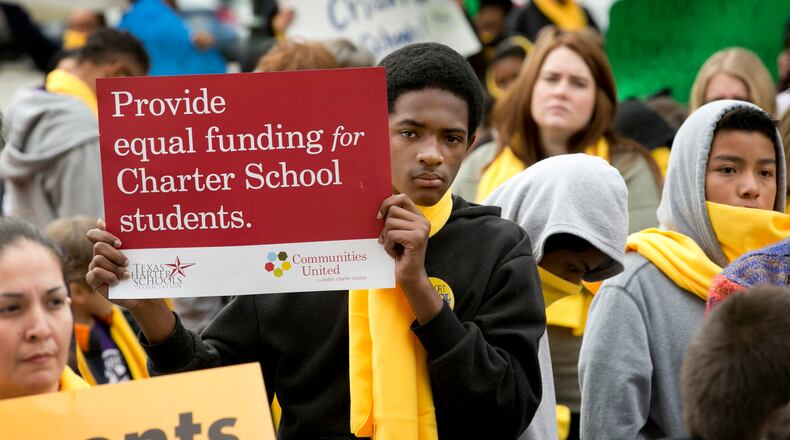Andrew Lewis spent 12 years as the executive vice president of the Georgia Charter Schools Association. He is now vice president of Opus, a financial management platform for public charter schools.
In this guest column, Lewis assails the 2022 health, labor and education spending bill approved last week by the House Appropriations Committee. He and other charter supporters contend a provision in the bill financially targets charter schools that contract with private companies to provide students with needed services and supplies, such as curriculum, food, transportation, and back-office support.
By Andrew Lewis
I have been a longtime supporter and advocate of public charter schools. These public schools of choice serve nearly 3.5 million students, many in disadvantaged communities.
When looking at a map of charter schools in Georgia, the overwhelming majority are located in places like the cities of Atlanta and Savannah as well as the counties of DeKalb and Clayton. The student population in these communities are majority minority populations with some of the lowest academic outcomes in the state.
It is under these circumstances I am dismayed to learn of proposed federal funding cuts to public charter schools by the U.S. House Appropriations Committee. The proposed cuts fly in the face of public policy that has been supported by every president since Bill Clinton.
The committee, under Democrat leadership, has proposed a $40 million reduction of the federal Charter Schools Program, a grant created under President Clinton. The committee is recommending these cuts even though President Joe Biden’s budget recommends no reductions. The committee is suggesting these cuts even as the public charter school sector continues to add more schools and students across the nation.
More alarmingly, the committee has included broad and sweeping language within the bill potentially barring “a charter school that contracts with a for-profit entity to operate, oversee or manage the activities of the school” from receiving any federal funding. This language is so overly broad, it may well have unintended and detrimental financial consequences on charter schools throughout the nation.
What is most striking is how the committee singles out only public charter schools when traditional public schools and districts utilize many of the same for profit vendors for various purposes. And if the committee’s attempt is to address the role and performance of for-profit education management organizations around the nation, the proposed solution of withholding federal funds from a “charter school that contracts with a for-profit entity to operate, oversee or manage the activities of the school” is irrational.
The committee’s answer may unjustly punish the 90% of charter schools that don’t contract with a for-profit education management organization but do contract with IT, textbook, food service, facility, furniture and other for-profit companies. The company I work with oversees the financial duties of charter schools. If the committee has its way, will schools be forced to choose between receiving federal funding and the services we provide?
Charter schools are a microcosm of any district board of education. Good governance and oversight is essential to ensure quality academic, financial and operational outcomes. The committee needs to do more to encourage sound governance and oversight at both charter school and district board levels.
The current language as proposed by the committee places 3.5 million children in harm’s way. And looking at the students that attend these public schools, this is not only bad policy, it’s bad politics.
The author of this guest column, Andrew Lewis, is a longtime charter school advocate in Georgia.
About the Author
The Latest
Featured




